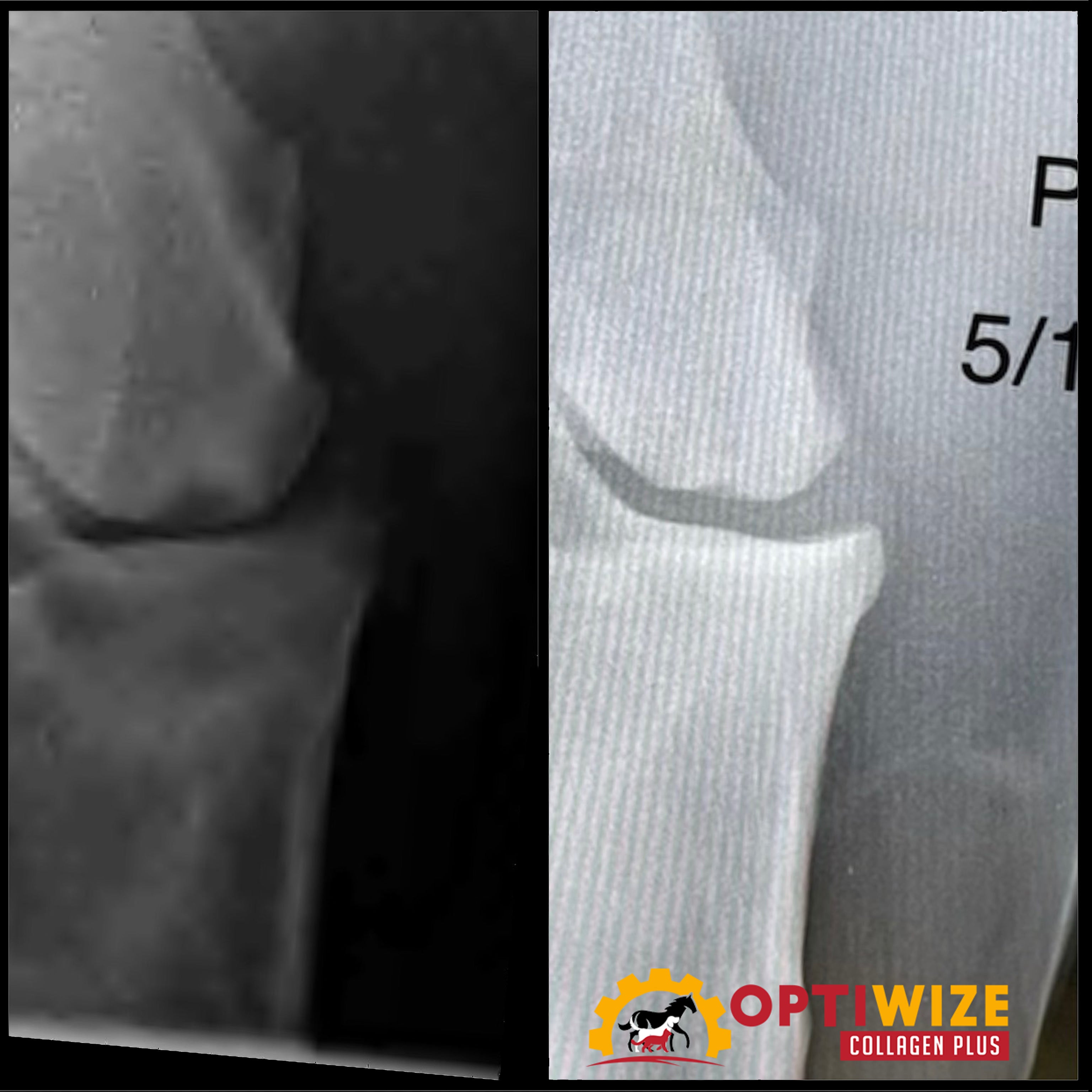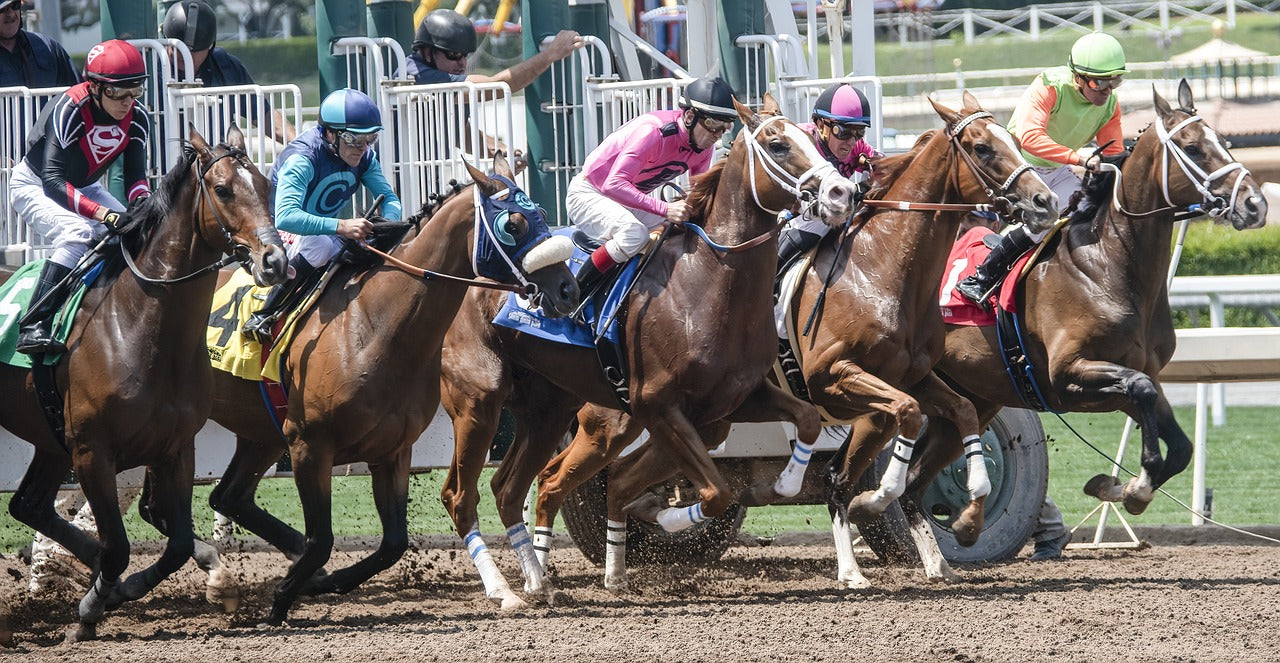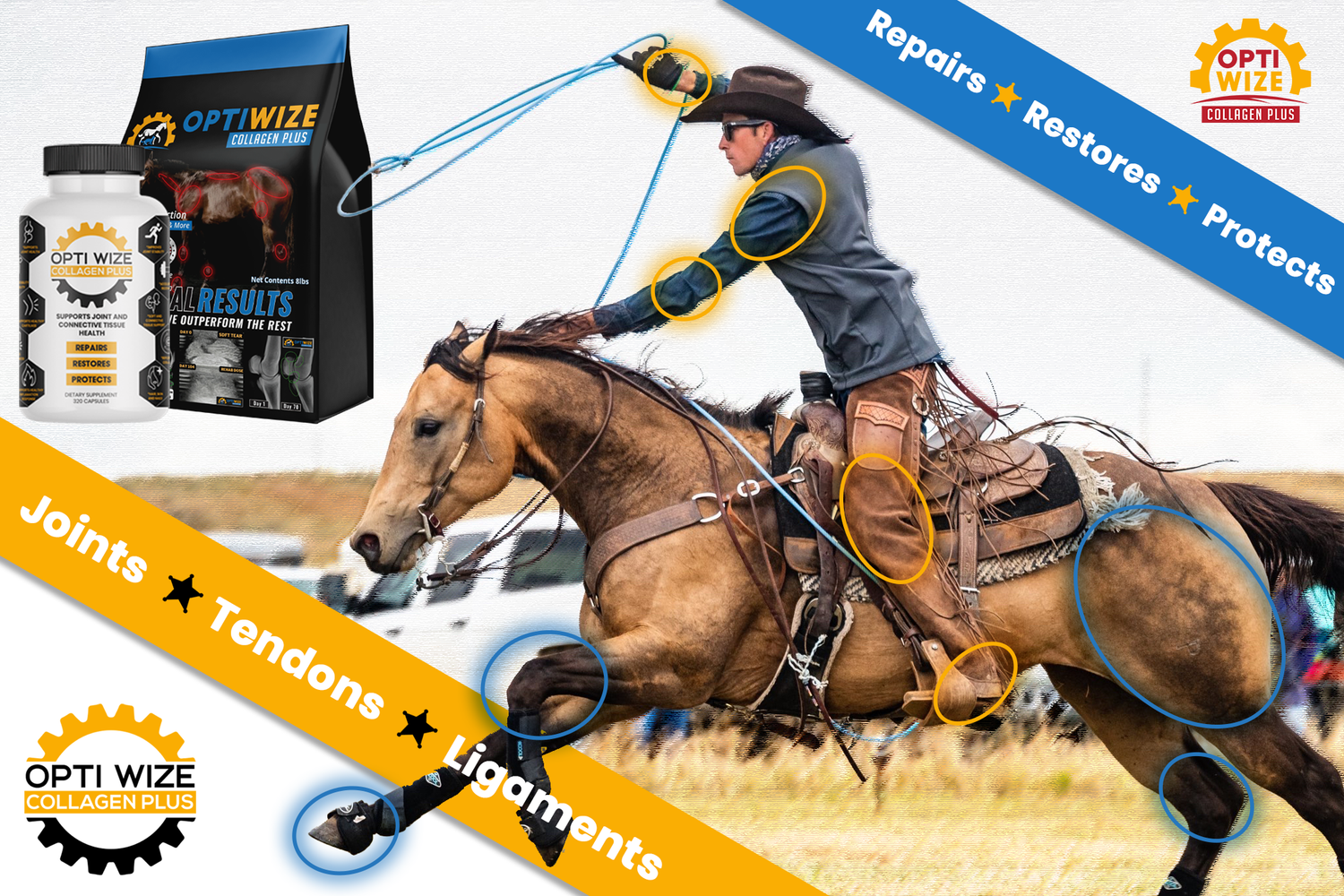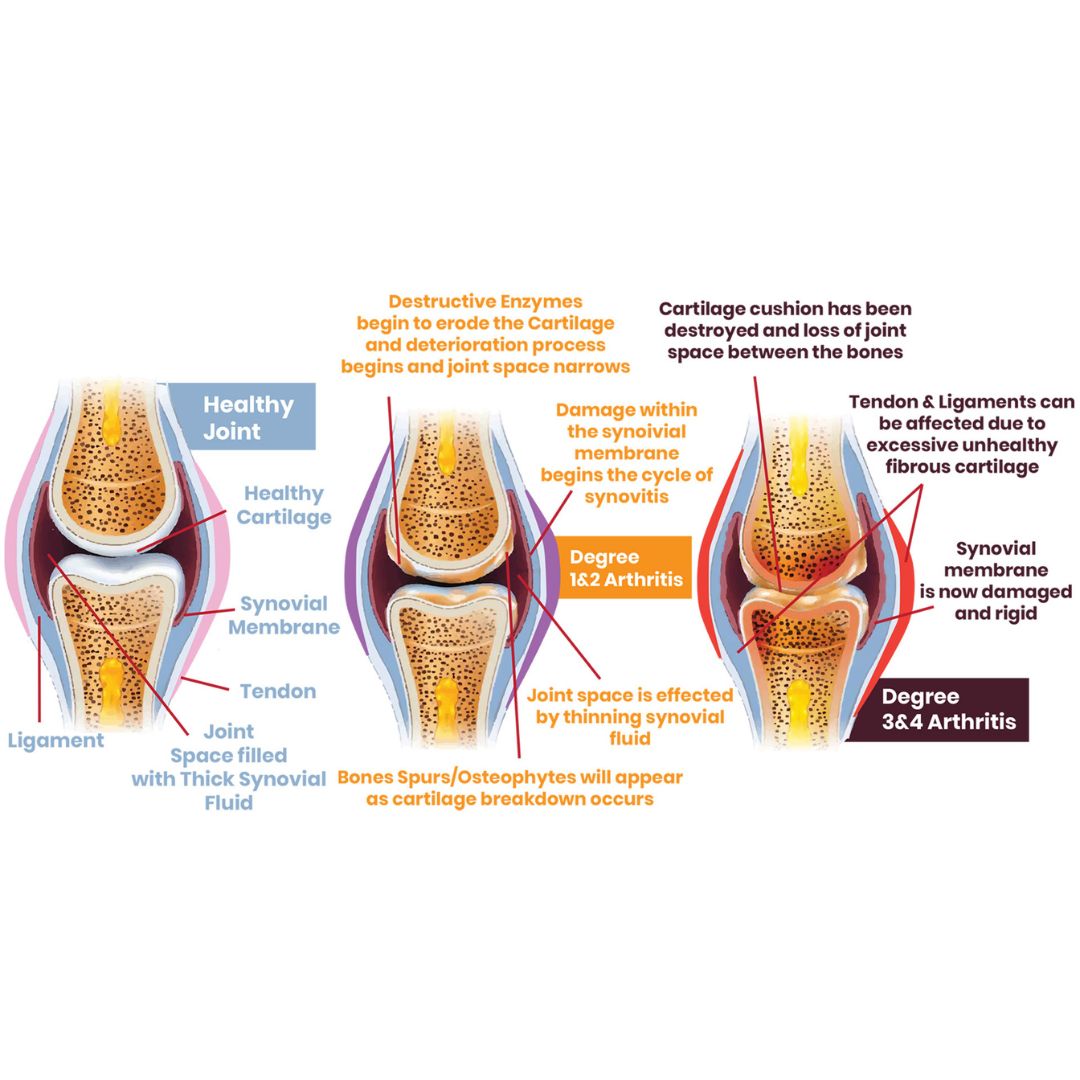Welcome to our comprehensive guide on Osteochondrosis "OCD's" in horses. In this article, we will delve deep into this orthopedic condition, providing you with a thorough understanding of its causes, symptoms, diagnosis, and how to care for horses affected by Osteochondrosis.
What is Osteochondrosis?
Osteochondrosis dissecans, often referred to as an OCD, is a common orthopedic disorder that can affect horses of various ages and breeds, predominantly in young horses. It primarily impacts the horse's joints, particularly the hock, stifle, and fetlock joints. An OCD occurs when there is a disruption in the development of cartilage and bone in these joints. Malformed cartilage with irregular thickness and reduced strength compared to normal joints, which can lead to the formation of these fragments.
Rehab Dose of OptiWize

Signs and Causes of Osteochondrosis
Recognizing the signs of Osteochondrosis is crucial for early intervention. Common symptoms include lameness, joint swelling, stiffness, and decreased performance. Understanding these signs can help you identify the condition and seek timely veterinary care. Understanding the underlying causes of Osteochondrosis is essential for prevention. Factors such as large body size, genetics, nutrition, joint trauma, and rapid growth play significant roles in the development of OCDs. Insufficient blood flow may contribute to the development or progression of conditions like OCD in horses, as reduced nutrient supply can compromise the integrity of the joint tissues.
Osteochondrosis Diagnosis
To effectively manage Osteochondrosis, a precise diagnosis is essential. Early detection can lead to better treatment outcomes. Diagnosis typically involves radiographs, revealing malformed cartilage with irregular thickness and reduced strength compared to normal joints, which can lead to the formation of fragments.
Caring for Horses with Osteochondrosis
Early detection allows for the prompt treatment of the OCD’s before they become problematic. However, if left untreated signs of lameness and joint inflammation may manifest as they age and engage in physical activities. Starting a young horse on OptiWize can promote bone and cartilage strength during growth and has shown to be incredibly supportive in reversing OCD-related pathologies. Formulated with 10-all natural ingredients, OptiWize offers benefits that also help reduce inflammation and alleviate joint pain associated with an OCD. The ingredients in OptiWize can help increase blood flow and help with the absorption of the nutrients to increase healing of an OCD or helping with the prevention. If your vet has recommended surgery to remove the OCD, OptiWize can help your horse through the post- op recovery process and aid in the healing from the surgery. Collagen plays a crucial role in promoting health cartilage by providing structural support and maintaining the integrity of joint tissues. Cartilage is composed of primarily collagen fibers, which contribute to its strength and flexibility. Type 2 collagen, specifically, is a predominate component to articular cartilage making OptiWize a perfect addition to your horse's rehab from and OCD.
Understanding the Difference between OCD in Horses and Other Joint Issues
When discussing OCD in horses, it is important to understand how it differs from other equine joint conditions. While horse osteochondrosis specifically refers to abnormal cartilage and bone development, many older horses also experience degenerative changes in their joints due to age or injury. This is why veterinarians often recommend early monitoring, nutritional management, and in some cases, adding a horse joint supplement to the horse’s diet to support long-term joint health.
How Osteochondrosis Progresses in Horses
The progression of osteochondrosis dissecans in horse cases depends on multiple factors, including age, workload, and diet. In some young horses, fragments can remain stable without major issues, but in others, they may cause ongoing inflammation. Regular checkups and preventive care, including equine joint supplements, can help manage the condition before it impacts performance.
Nutritional Support for OCD in Horses
Nutrition plays a major role in the prevention and management of horse osteochondrosis. Horses with rapid growth rates, imbalanced mineral intake, or insufficient protein may be more susceptible to OCD in horses. Supplements containing omega fatty acids, antioxidants, and collagen are often part of a well-rounded plan, and senior horse supplement blends can also be tailored to older horses recovering from joint injuries.
Exercise and Conditioning for Horses with OCD
While rest is important during flare-ups, incorporating controlled exercise can be valuable for managing osteochondrosis dissecans in horse. Low-impact training such as walking or swimming keeps muscles engaged without placing excessive strain on the joints. Riders and trainers should work closely with veterinarians to develop a plan that supports recovery while preventing stiffness a strategy often combined with targeted horse joint supplement programs.
The Role of Joint Supplements in Horses of All Ages
Joint supplements for horses are not just for older or injured horses they can be valuable for young horses prone to OCD in horses and competitive horses under heavy workloads. These supplements may contain glucosamine, MSM, hyaluronic acid, and collagen to maintain cartilage integrity. When paired with proper training, diet, and veterinary guidance, they can be part of a broader management approach for horse osteochondrosis.
Special Considerations for Senior Horses
Aging horses face additional challenges, and a senior horse supplement can provide targeted nutrients to maintain joint mobility and bone strength. Although osteochondrosis dissecans in horse is typically seen in younger equines, older ones recovering from previous injuries may gain from added nutritional support for comfort and mobility.
Conclusion
OCD in horses is a condition that requires a thoughtful, multi-faceted approach. From early diagnosis to nutrition, exercise management, and the inclusion of a horse joint supplement, every decision plays a role in supporting long-term joint health. Whether your horse is a young athlete or a beloved senior, focusing on cartilage strength, balanced nutrition, and consistent veterinary care can make a significant difference. For horse owners looking to support recovery and overall joint well-being, products like OptiWize Collagen Plus can be part of a comprehensive plan alongside veterinary recommendations.



